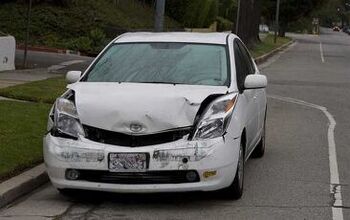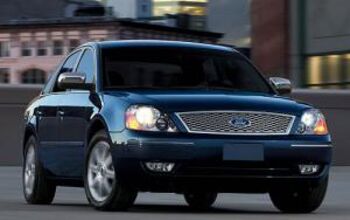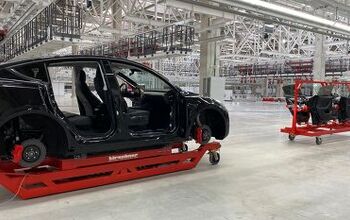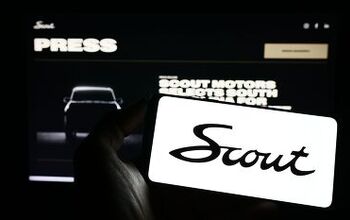Editorial: Customer Care
The most ardent fans of Detroit accuse those who don’t buy domestic cars of being disloyal, if not downright un-American. But loyalty only makes sense when it runs in both directions. And Detroit has not been loyal to Americans, whether they be its workers, its suppliers, or its customers. But, assuming General Motors and Ford survive the current crisis, it’s not too late. Let’s focus on car buyers. What might Detroit do differently to deserve our loyalty?
Well, a few things. But the most significant would be providing customer care that deserves the name. Most of those who refuse to “Buy American” do so because they were burned by an “American” car, sometimes multiple times. In these cases, not only did the car require too many repairs—which was bad enough in itself—but the manufacturer did little or nothing to accept responsibility for the design or manufacturing defect and take care of the affected car buyer. If Detroit does nothing to assist car buyers when design or manufacturing defects lead to expensive repairs, then why should car buyers support Detroit when it needs assistance?
Some of Detroit’s apologists pretend that these experiences occurred decades ago, with cars like the Vega and Pinto, and that at this point Detroit deserves to be forgiven. This simply isn’t true. Operating TrueDelta’s Car Reliability Survey, I continue to learn of new horror stories. And in the past five years I’ve had the misfortune to experience both Ford’s and Chrysler’s “customer care” first hand.
In one case, a 1996 Ford Contour V6 lost compression in three cylinders at 66,000 miles. I learned from an insider that the most likely cause was a known engineering defect. When engineers had learned of the defect a few years earlier, they had recommended recalling the entire model year. Management had balked because of the potential cost; instead, they had authorized only a partial recall. My car fell outside the dates of the recall. As a result, the recall was not performed, the known failure occurred, the engine was badly damaged, and I took a big hit when I traded the car.
In the second case, the wheels on a 3.5-year-old 2002 Chrysler PT Cruiser (wife wanted one) required replacement because they corroded so much they could not form an airtight seal with the tires. Then the torque converter grenaded, taking the transmission pump with it, with only 52,000 miles on the car. Then the control arm bushings failed. Chrysler picked up half the cost of the wheels, and none of the cost of the other repairs.
Of course, neither company had a legal obligation to pick up any of these repair costs. After all, the warranty had expired. But, when a warranty is strictly enforced, the implication is that the car buyer accepts responsibility for any design or manufacturing defects that reveal themselves after the warranty expires.
Put another way, the car buyer is forced to bet on the quality of the manufacturer’s work. It has not served Detroit well to force car buyers to decide whether or not to place this bet. More and more Americans have “left the casino” after losing this bet a time or two. When speaking with Ford’s and Chrysler’s “Customer Care” people, I presented this logic. I asked them what they’d do if they had to choose between picking up the cost of the repair and losing a customer. Both said they’d rather lose the customer.
Customer care deserving of the name wouldn’t mean paying for any and all repairs indefinitely. But whenever a known design or manufacturing defect results in thousands of repairs, it’s time for the manufacturer to accept responsibility and cover the costs. And not on a case by case basis—they already do this much—but as a matter of publicly-stated policy. A reasonable trigger might be a failure rate of 10 percent before 100,000 miles, or 20 percent before 120,000 miles. As long as cases are decided arbitrarily rather than by such a clear, publicized rule, confidence in the manufacturer won’t receive much of a boost.
Now, it’s not clear that Detroit’s customer care is significantly worse than that of foreign manufacturers. Horror stories exist for any model, foreign as well as domestic. Oil sludge in Toyotas and failing transmissions in Hondas come to mind. But Toyota and Honda aren’t desperately in need of car buyers’ loyalty at the moment. General Motors and Ford are. (Chrysler’s independent existence is all but over at this point.) Pretending that horror stories are all in the distant past isn’t going to do the trick. If Detroit wants earn forgiveness for its sins, and regain the loyalty of American car buyers, it must put what little money it has left where its mouth is and provide customer care that can be counted on.
Michael Karesh lives in West Bloomfield, Michigan, with his wife and three children. In 2003 he received a Ph.D. from the University of Chicago. While in Chicago he worked at the National Opinion Research Center, a leader in the field of survey research. For his doctoral thesis, he spent a year-and-a-half inside an automaker studying how and how well it understood consumers when developing new products. While pursuing the degree he taught consumer behavior and product development at Oakland University. Since 1999, he has contributed auto reviews to Epinions, where he is currently one of two people in charge of the autos section. Since earning the degree he has continued to care for his children (school, gymnastics, tae-kwan-do...) and write reviews for Epinions and, more recently, The Truth About Cars while developing TrueDelta, a vehicle reliability and price comparison site.
More by Michael Karesh
Latest Car Reviews
Read moreLatest Product Reviews
Read moreRecent Comments
- SCE to AUX "...to help bolster job growth and the local economy"An easy win for the politicians - the details won't matter.
- Kjhkjlhkjhkljh kljhjkhjklhkjh so now we will PAY them your tax money to build crappy cars in the states ..
- SCE to AUX Yes, I'll miss it, and it doesn't make sense to kill off your 3rd-best seller. 2023 was its best year since 2018.
- SCE to AUX This was the same car I had (05 xB, stick, "camouflage" color) for 7 years - great car.We called ours "The Lunchbox". I added aftermarket wheels, and the 3rd-party cruise control the dealers could install.It suffered only two failures: bad window switch in week 2 (dealer fixed in 1 hour), bad trailing O2 sensor (fixed myself for $70). Fuel economy was always 28-34 mpg.It was a potential death trap, and ride quality became unbearable after 2 hours. I once did a 10-hour round trip in it and could barely walk after.Traded it for a 2012 Leaf, which was a better car in some ways.
- Bd2 The "e" nomenclature signifies the e-ATPs which BMW is pursuing.


































Comments
Join the conversation
While I haven't read through all of the posts, I do agree (as others have) that the owner is taking a gamble on the car. Even with a warranty, the dealership has to accept the car as having a warranty related problem. This is one of my biggest issues with the system. A few years back, I took my 'certified used' nissan w/ an extended warranty to my mechanic after the power steering went out. The broken part was a pulley that was claearly listed as warranty work. However, the dealership argued it was a pin holding the pulley that broke and, thus, they wouldn't honor that agreement. I followed up with Nissan USA, who stated that they had to go on the word of the dealership. Faced with bills to to tow the car elsewhere and to be without the car longer, I paid the bill. However, I informed Nissan USA that they had lost a customer for life (and at 25 that is a long life). It wasn't till afterward that I found out that Nissan corporate doesn't like to pay for dealership work. Thus, the dealership finds ways to wiggle out of claiming it as warranty work. As I have been to several dealers and can't find one that I even remotely trust, no more Nissans in my future. The big 3 have to learn that treating everyone else badly will eventually get you burned.